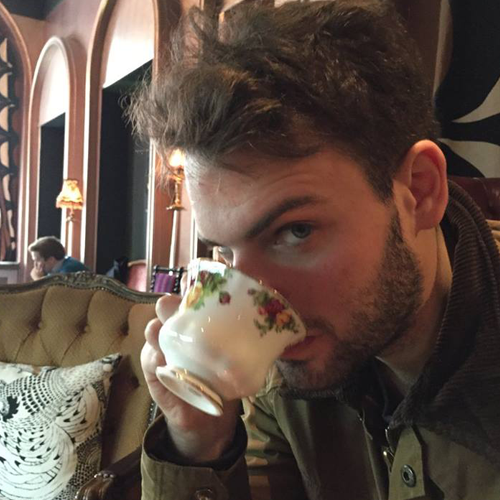When Zachary Lazar was six, his father was murdered in an Arizona parking garage. Years later, the events of that day brought him and Deborah Luster—a photographer living two blocks away from Lazar in New Orleans, who also had a parent murdered in Phoenix by contract killing—to Angola prison in Louisiana, where the inmates were staging a passion play: The Life of Jesus Christ. The idea was, as he writes in his new novel Vengeance, “that by interpreting this play about the possibility of redemption in the wake of violence, Deborah and I might somehow enact ‘a kind of redemption of our own.’”
Though the novel begins with these events, we soon embark on a Lazar-like narrator’s investigation surrounding the innocence of a fictional inmate he befriends at Angola, named Kendrick King. Like recent true-crime docs, S-Town and The Jinx, the teller gets caught up in the telling, though, this being a novel, Lazar further confuses our notions of what’s “real” and “imaginary”—to the point where the labels themselves become meaningless. After all, as he writes, “what really happens in the world so often belies any notion of ‘realism.’”
In Vengeance, then, we get the best of both worlds: not only a did-he-do-it story, but a reckoning with that story in and of itself, of the ways in which we assess guilt and innocence, fact and fiction, punishment and justice. It’s a novel about the criminal justice system, race, New Orleans, violence, crime—but it’s also a novel about how we see.
I’ve been a fan of Lazar’s novels—for which he’s been awarded the John Updike Award from the American Academy of Arts and Letters, among others—since taking creative writing from him as an undergrad at Tulane University. We caught up the week following Vengeance’s release.
As a writer, hearing about this passion play in a state prison just screams, “I have to write about this!” And yet aren’t those subjects often the hardest to write about? Did you struggle with that? At what point did you hit on, ok, this is the story I’m going to tell?
I spent a week, day and night, at Angola prison, mostly interviewing inmates, over 40 of them at great length. I was there as a journalist, so my initial writing was an essay in which I tried to pack in as many of these stories into a narrative about the challenges of inmates mounting a large theatrical production. Some of that essay made its way into Vengeance. Very few of the people I interviewed during that week claimed to be innocent. Having written and thought about incarceration for five years now, I no longer even know what the word “innocent” even means, but back then I was very haunted by the physical sensation of someone looking me in the eye and telling me they were innocent, that they didn’t belong in prison. It’s a very powerful sensation. So I knew that when it came to writing a novel, I would write about that sensation and carry it forward, imagining that instead of leaving the prison and moving on, I would become obsessed with a man who claimed he was innocent. This fictional investigation of an inmate’s past would provide me with my structure. Once you have a structure, your job as a novelist is to leave out everything you can leave out. Stay focused on the story you are supposed to be telling.
When I think about this novel in relation to your previous two, I see this progression inwards, so to speak: In Sway, you take up the voice of various historical characters from the '60s (Brian Jones, Kenneth Anger, etc.); more recently, in I Pity The Poor Immigrant, you still engage with historical characters (Meyer Lansky, for instance) but with a stand-in for yourself as storyteller, akin to Philip Roth’s Zuckerman. Here, though, the distance has been closed. The narrator is basically “you.” It’s a hard thing to accomplish—one of the first things you learn as a fiction writer is that it’s challenging to write about something too close to the actual events; you need that distance to be creative, to avoid melodrama, etc. So how did you create that distance here? Did you always have this narrator in mind, or did that come later?
In Vengeance, I am a white writer dealing with a black man’s story. I wanted that problem to be in the foreground of the book. I didn’t want to create the usual illusion of omniscience that novelists typically create (although, when I write scenes from the point of view of Kendrick King, the inmate at the center of the story, I am creating an illusion of authority). I went to the prison for strange reasons having to do with the actual fact that my father was murdered. I felt that fact was important to the story I wanted to tell. So, now I had made the unusual decision to put myself into a work of fiction, which creates all kinds of problems and challenges that you can’t foresee. I eventually realized that if I was going to be a “character” in the book, I couldn’t just be passive—something had to happen, I had to have a story of my own. So there is a lot of fiction going on in “my” story, too, though my goal is for the reader to experience the whole book as nonfiction, even if you know it’s bogus nonfiction.
Speaking of “your” story, some of my favorite passages are the ones in which we spend time with the narrator just hanging out in New Orleans, not investigating the murder. How did you develop those?
Those were late additions that I resisted putting in. I obviously wanted the focus to be on Kendrick and his story. I felt that talking about the kind of life I live would be a distraction (and also make me look like a complacent jerk). But I finally came to understand that these sections are necessary to give a true picture. I have friends in prison, and friends struggling to put their lives back together after getting out of prison, and I felt a strong responsibility to them while writing Vengeance. But I am obviously not in prison, and I have a good life, a life full of enjoyment, and this contradiction is part of the world we live in.
Somehow you manage to convincingly set up this parallel between the life of a writer and the life of a prisoner. Both the narrator and Kendrick are performing in some way, and, in doing so, disassociating from real life. They’re both trapped, too, be it literally (in Kendrick’s case) or figuratively (in the narrator’s case). Freedom itself, you write, “could be a kind of wound.” Obviously you’re not suggesting an equivalence between the two states, but I did find myself wondering what you’ve learned as a writer from engaging with prisoners, and what you think they can learn from writers?
I’m not sure I see a writer as trapped, even figuratively. Writing is an act of freedom, and if it doesn’t feel that way, then you should take a break. What I would say that I learned is that there are a lot of people in prison who are themselves writers and artists, people who have minds as bright as any minds I’ve encountered (and I’ve encountered many minds). I have a friend in prison who, when I told him I was trying to write a novel about a man serving life in prison, offered to send me his novel (he is serving life at Angola). It’s brilliant. Structure, voice, plot, dialogue, atmosphere—I don’t know how he figured out how to do it all so well.
You’re a white writer writing across race. I’m a white writer too, but at least from where I’m sitting, I think you’ve done it remarkably well. The subject is almost always present—sometimes on the surface, sometimes under it—and yet it never becomes the only way we see these characters. In 2018, how do you go about writing these characters? How much did you consciously think about it in the writing process?
Writing across the racial divide is rightfully challenging because if you do it badly you enhance the divide. But my job as a fiction writer is to write about people who aren’t me. That’s why I’m a fiction writer. I don’t have to know everything about my characters, I just have to know how they feel and what they think in specific dramatic moments in the story I’m telling. Race is woven into a whole fabric of emotions and thoughts in each one of those moments. I just try to imagine those moments in their totality, and then, while I’m writing a book like this, I’m looking everywhere for voices that challenge me, contradict me, tell me that I’m off the mark. That helps me get better. But writing across race was something I had to do it if I wanted to write about what I saw at Angola.
I wonder how the research process for a novel like this goes. You’ve mentioned elsewhere that Kendrick is an amalgamation of several different people you met at Angola. But did you actually start following any of these cases down the rabbit hole?
I followed a lot of cases down the rabbit hole. It’s easy to do now that we have the internet. But research is a form of procrastination after awhile. You have to stop it or you’ll never write the book.
There’s been an explosion in popularity for true-crime docs—Sarah Koenig, of Serial fame, even has a blurb on the back cover of your book. What do you think is so seductive about the genre? And what can the novel working in this vein do that those shows and podcasts can’t?
Actually, one of my influences with this book was the old Errol Morris film “The Thin Blue Line.” As I’ve said before, crime is a close cousin to power. Those of us who have no firsthand experience of major economic or political power (most of us) might find some vicarious approximation in crime stories.
As for novels, I think they can still do one thing that no other medium can, which is to use language in such a way that we experience a story as though we are in the consciousness of the characters, not just watching them from the outside, as on a screen, or hearing about them through others, as in a podcast. It’s an illusion, but it’s a powerful illusion.
This is also very much a novel of place. Your descriptions of New Orleans not only embody the ethos of the city, but, I think, the whole book. This idea of: in the face of all this injustice, we have no choice but to live. Do you see this ethos as fatalist or hopeful or both? How has your experience living in NOLA impacted your writing and thinking?
Yes, living in NOLA has changed me enormously. It’s a much deeper city than I expected before I moved here, and its famous culture of celebration, which is real, is inextricably related to serious political and economic traumas. I don’t think of New Orleans as a fatalistic city, though. The culture of celebration would not exist if people were fatalistic. What’s unusual here is that activism and resistance are not in contradiction to celebration. It’s not a puritanical city. It’s more complicated than that.
Last question: Where’s your favorite spot to see live music in New Orleans?
The Prime Example, a jazz club in the Seventh Ward.






